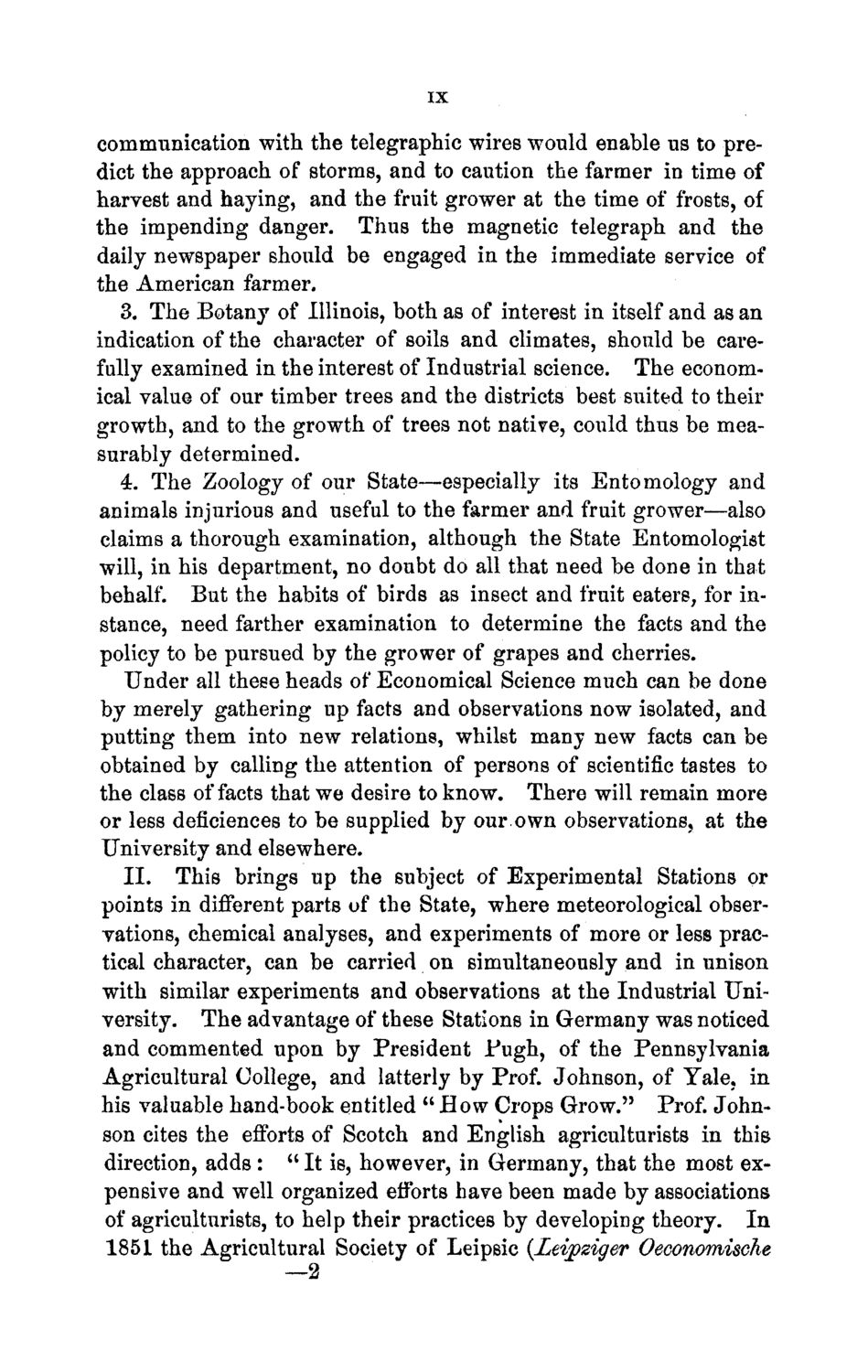| |
| |
Caption: Board of Trustees Minutes - 1868
This is a reduced-resolution page image for fast online browsing.

EXTRACTED TEXT FROM PAGE:
IX communication with the telegraphic wires would enable us to predict the approach of storms, and to caution the farmer in time of harvest and haying, and the fruit grower at the time of frosts, of the impending danger. Thus the magnetic telegraph and the daily newspaper should be engaged in the immediate service of the American farmer. 3. The Botany of Illinois, both as of interest in itself and as an indication of the character of soils and climates, should be carefully examined in the interest of Industrial science. The economical value of our timber trees and the districts best suited to their growth, and to the growth of trees not native, could thus be measurably determined. 4. The Zoology of our State—especially its Entomology and animals injurious and useful to the farmer and fruit grower—also claims a thorough examination, although the State Entomologist will, in his department, no doubt do all that need be done in that behalf. But the habits of birds as insect and fruit eaters, for instance, need farther examination to determine the facts and the policy to be pursued by the grower of grapes and cherries. Under all these heads of Economical Science much can be done by merely gathering up facts and observations now isolated, and putting them into new relations, whilst many new facts can be obtained by calling the attention of persons of scientific tastes to the class of facts that we desire to know. There will remain more or less deficiences to be supplied by our own observations, at the University and elsewhere. I I . This brings up the subject of Experimental Stations or points in different parts of the State, where meteorological observations, chemical analyses, and experiments of more or less practical character, can be carried on simultaneously and in unison with similar experiments and observations at the Industrial University. The advantage of these Stations in Germany was noticed and commented upon by President Pugh, of the Pennsylvania Agricultural College, and latterly by Prof. Johnson, of Yale, in his valuable hand-book entitled " How Crops Grow." Prof. Johnson cites the efforts of Scotch and English agriculturists in this direction, adds : " It is, however, in Germany, that the most expensive and well organized efforts have been made by associations of agriculturists, to help their practices by developing theory. I n 1851 the Agricultural Society of Leipsic {Leipziger Oeconomische —2
| |